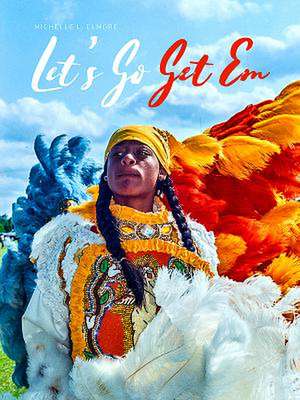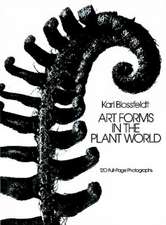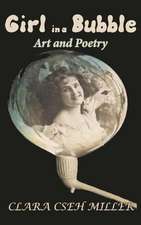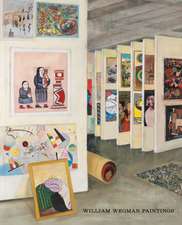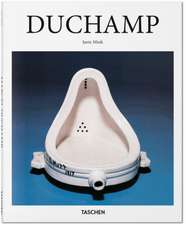Michelle L. Elmore
Autor Elmore, Michelle L.en Limba Engleză Paperback
I’ll never forget that first time a saw a New Orleans Mardi Gras Indian. I was driving home while the sun was setting and there was a flash of orange feathers. My heart jumped. I didn’t take many photos that day, just three. Then, I handed my camera to some people with the Indians to take my picture with them. I was enamored from the start. Previous pictures I saw of the Indians focused on the suits blocking out the faces. With the incredible amount of work and art that went into these suits, I felt it was important to include the faces of these artists. It felt like it was no longer my art. It was an extension of what they were doing, and a way to honor what they had created. Their art is expensive and hard to do, and it isn’t done for monetary gain. I admire that, and I relate. And over time we got to know each other very well. The Indians began asking me to come out with them to take pictures. The Black Feathers had me document the images of my monograph Let's Go Get Em' on St. Joseph’s Night, when the Indians come out after sunset.
| Toate formatele și edițiile | Preț | Express |
|---|---|---|
| Paperback (3) | 347.34 lei 3-5 săpt. | |
| – | 347.34 lei 3-5 săpt. | |
| – | 349.52 lei 3-5 săpt. | |
| – | 359.40 lei 3-5 săpt. |
Preț: 359.40 lei
Nou
68.77€ • 71.99$ • 56.90£
Carte disponibilă
Livrare economică 15-29 martie
Specificații
ISBN-10: 0998748404
Greutate: 1.04 kg
Notă biografică
Michelle L. Elmore arrived in New Orleans in 1989, immediately after suffering a personal loss. A decade later, she was living in the city with her young son Jack Marley, their lives centered around the people, places, sounds, sights, rituals and rhythms captured in her Trilogy of monographs. She left New Orleans in 2005, after the aftermath of Hurricane Katrina resulted in flooding because of the levee breach. She had $69 in the bank and had lost many of her personal possessions. But she was fortunate because two weeks earlier she thought to pack up and move her negatives. Her search through those 12 salvaged boxes yields these images. They document the friendships that, for Elmore, transformed alienation into a sense of community, family. They suggest joy and pain in elegant balance and they pay tribute to the city that turned Elmore in the artist she sought to be, and that lent her art meaning.
